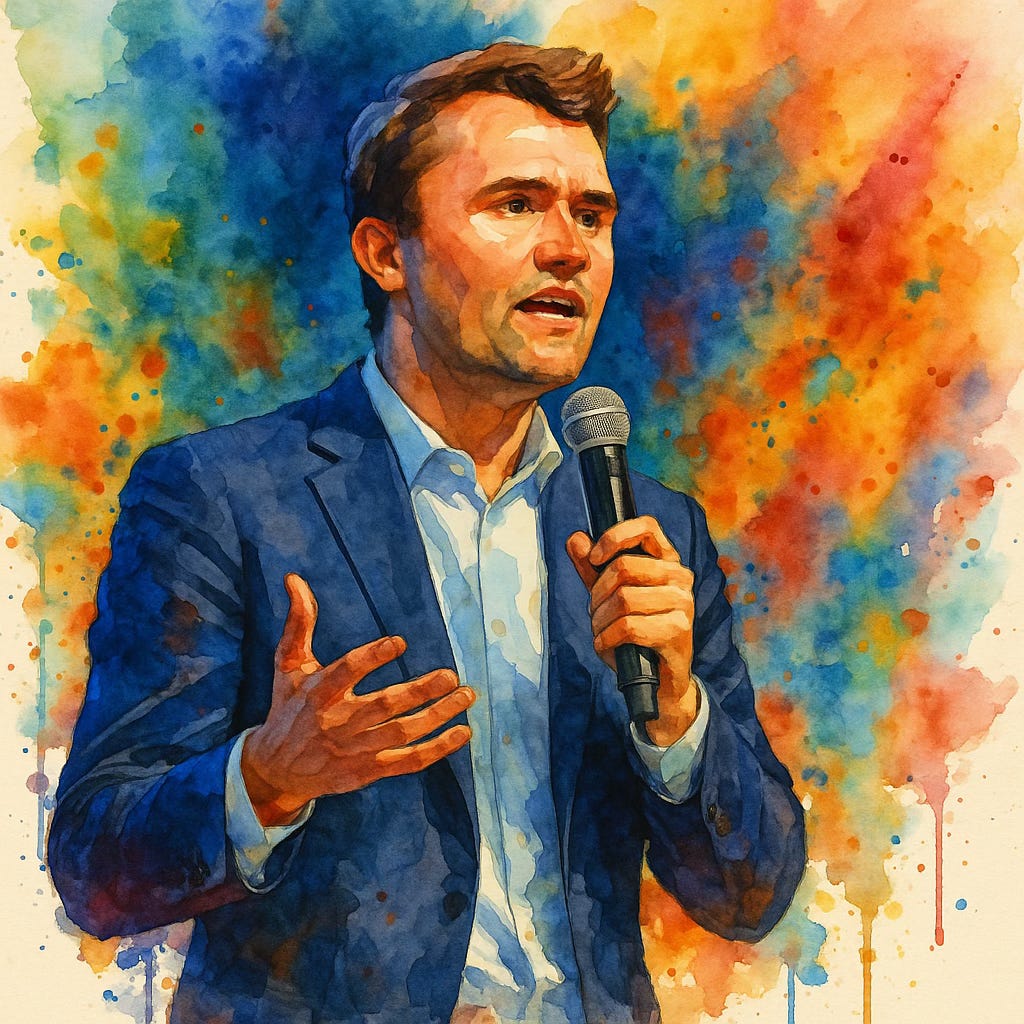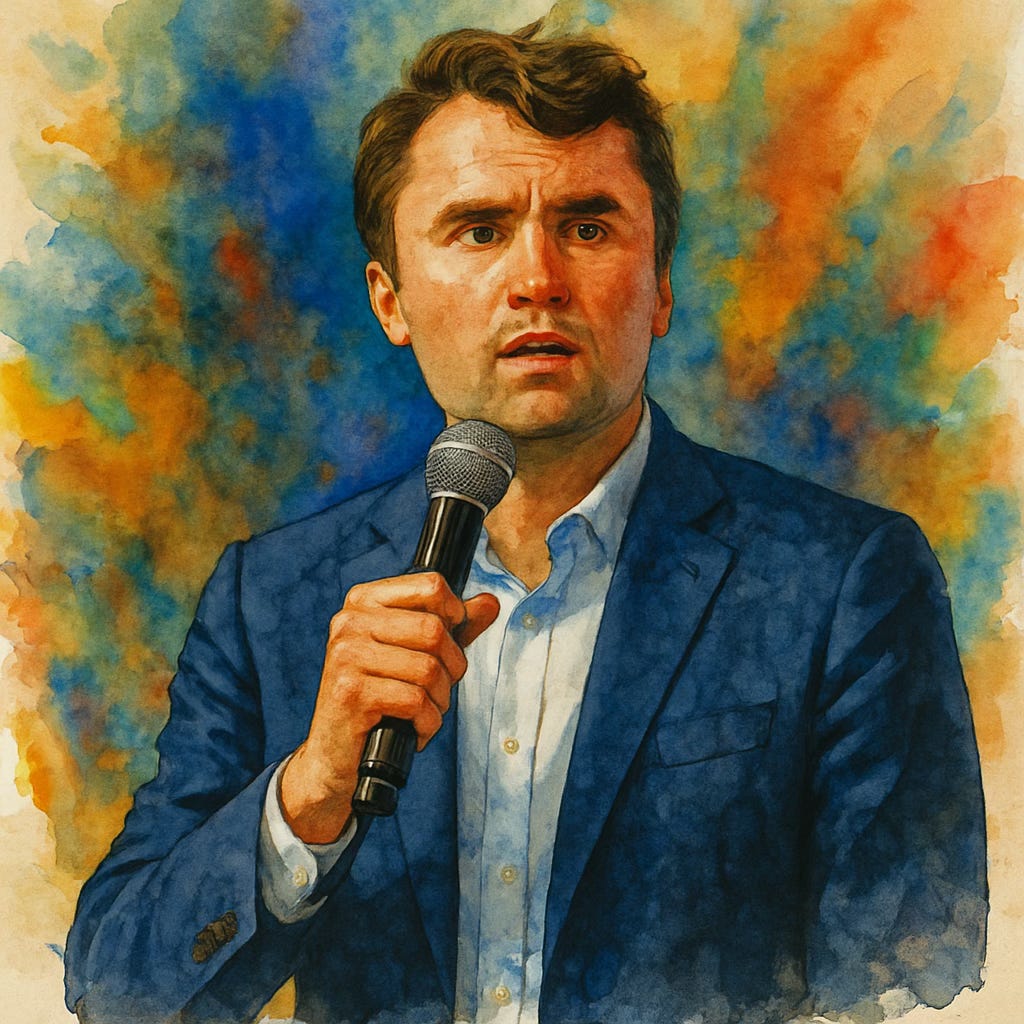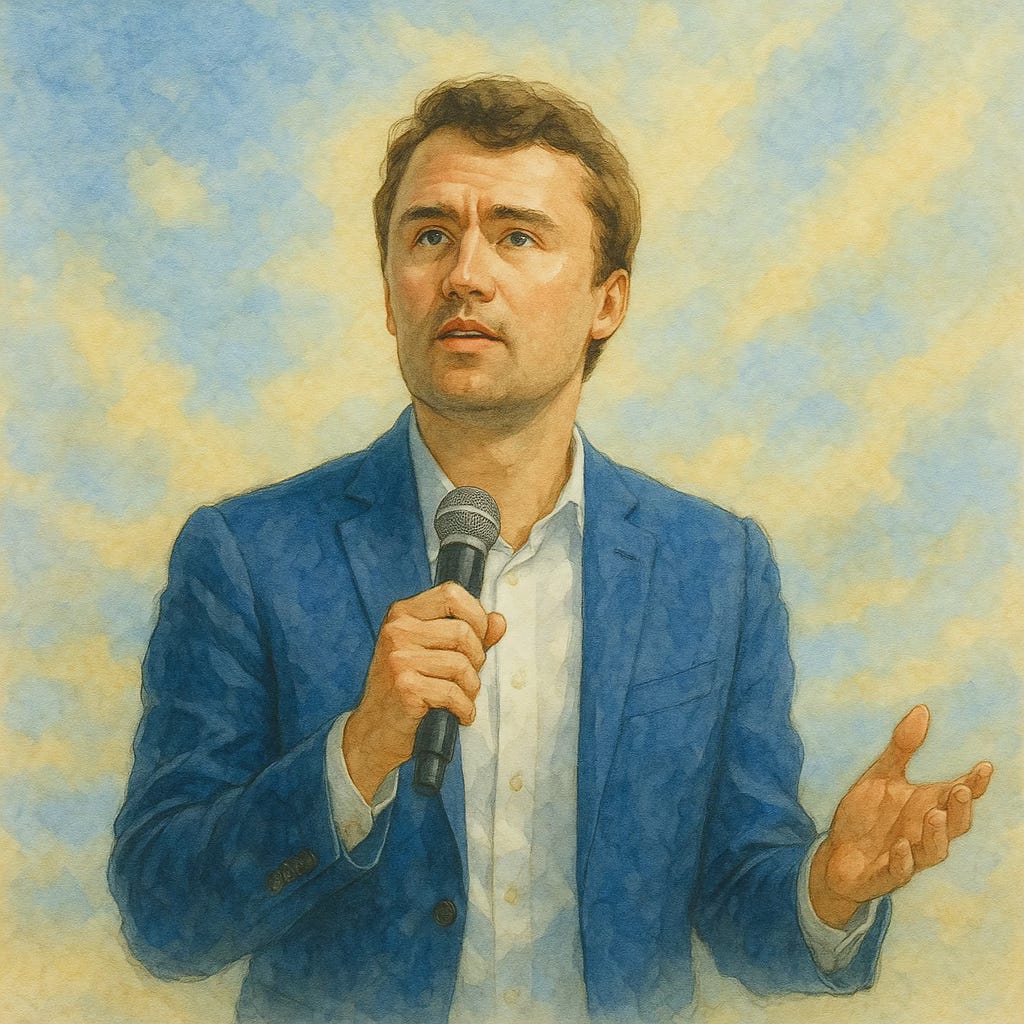Charlie Kirk
On Outliers, Loss, and the Seeds They Leave Behind
I never met Charlie Kirk. I never saw him at an event. I knew of Turning Point USA, and I knew it had something to do with his leadership—educating young adults about his view of the world, including his faith. If I add it all up, I may have seen an hour of his videos, scattered across the years. In other words, I didn’t know much.
But I did know what I admired. His ability to debate in real time, pulling from a seemingly endless storehouse of knowledge, was stunning. That was his outlier gift. It was a skill set I don’t have and never will. I could get better at it, sure, with time and practice, but even then, what Charlie had at 31 years of age was rare—beyond rare.
Yes, I agreed with his general conservative stance. Yes, I agreed with his Christian faith. Would there be things I disagreed with if I listened to more of him? Absolutely. Did that matter? Not in the slightest. His style of engagement was respectful. If he thought differently, he explained why. If you thought differently, he sought first to clarify your position before challenging it. To some, that clarification felt like a challenge, but there is a difference.
He valued family—and in today’s world, that alone makes a man an outlier.
Yet for me, Charlie will always be remembered for his unmatched skill, that rare gift beyond my reach.
The Moment Hope Collapsed
When news came that he had been shot, I was a passenger in a car. If I had been home, I wouldn’t have turned on the television. Instead I would have done the same as I did in the car, I scrolled: X, Citizen, anywhere I could find updates. What I feared most was the loss of that outlying gift—the voice, the clarity, the mind at work in real time.
Then came the video: the bullet hitting, the blood flowing. It left me with no good expectations. Hope lingered, fragile. And then hope was dashed.
Should that video have been posted? That’s an unsettling question. Part of me recoils. But then I remember Mamie Till-Mobley, the mother of Emmett Till.
Her 14-year-old son was abducted, tortured, and murdered in Mississippi in 1955. His body was mutilated beyond recognition. She was urged not to have an open casket. She refused. “Let the people see what I’ve seen.” Tens of thousands did, and the photographs spread across the country, galvanizing the Civil Rights movement.
Sometimes the horror must be witnessed—not for its gore, but for its truth.
Outliers and Lions
Why? Why Charlie? I can only circle back to an odd cultural echo: Disney’s Hunchback of Notre Dame (1996). Esméralda, radiant and free, was condemned by Judge Claude Frollo not because of what she was, but because of what she awakened in him. The judgment was projection. What Frollo despised in her was what he could not bear in himself.
So it is with outliers. Esméralda’s beauty was an outlier. Charlie’s intellect and communication were outliers. Outliers unsettle. They remind us of possibilities that lie beyond our grasp. They draw envy, judgment, sometimes violence.
And yet, they are the seeds that shift consciousness. Outliers are more than role models. They cannot be copied. They open doors we cannot open ourselves.
Charlie Kirk was one such outlier. That door is closed now. But seeds are never wasted.
The lions have awoken. Hear them roar.






